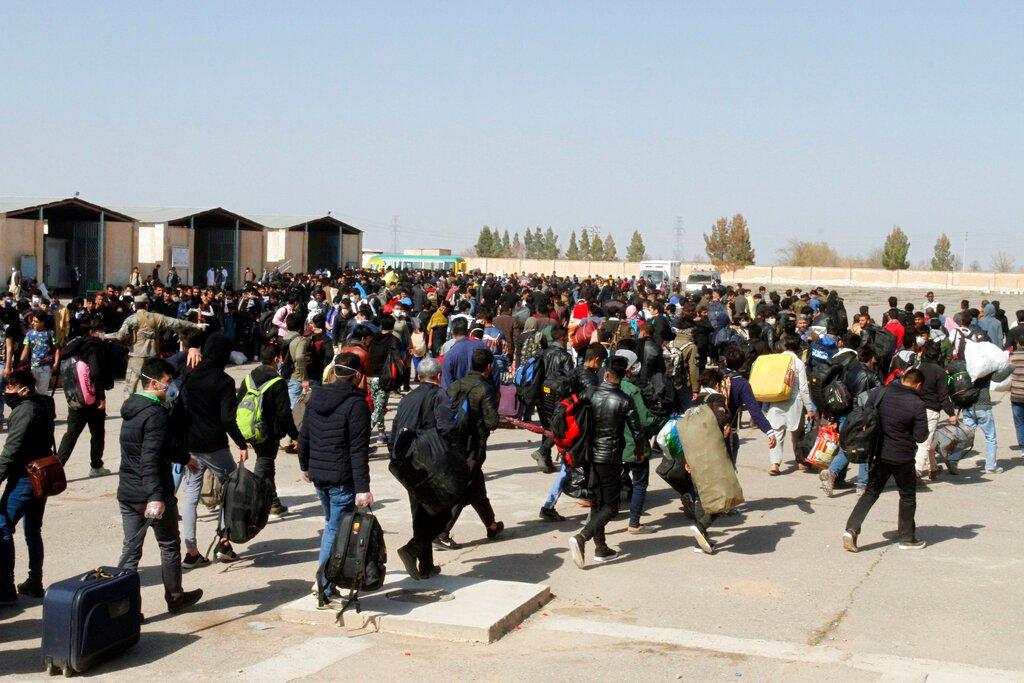Turkey pans US visa rules to rescue left-behind Afghans
The scheme requires Afghans to apply outside of Afghanistan, which Turkey says would cause a new migration crisis for neighbouring countries.
Just In
The Turkish government has criticised Washington’s new scheme to allow thousands of Afghans who worked for the US in some way to apply to settle in America.
The plan stipulates that applicants must apply for the visa from a third country, such as Turkey or Pakistan, Al Jazeera reports.
Turkey says the plan will cause a “great migration crisis” in the region.
The US Department of State on Monday announced a new programme under which certain categories of Afghans will get the chance to resettle as refugees in the US.
The new scheme is designed to offer refuge to Afghans who did not qualify for the resettlement system already in operation.
The scheme covers interpreters and translators who worked with US forces, Afghans involved with US-funded projects, and those employed by US-based NGOs or media organisations.
Afghans who want to join the programme would have to make their own way to a third country, where they will wait 12 to 14 months for their application to be processed.
Crucially, they will have to carry documentary proof of their US links, which could prove suicidal if seen by the Taliban.
A senior Department of State official said Washington had been in discussion with neighbouring countries on potential outflows, adding it was important that Pakistan’s borders with Afghanistan remain open.
Others potential applicants might attempt to travel to Turkey via Iran.
But the Turkish foreign ministry on Tuesday rejected Turkey as a migration route for Afghans, saying the country, which already hosts more than four million refugees, would not “undertake a new migration crisis on behalf of a third country”.
The ministry statement added: “As Turkey, we do not accept the irresponsible decision taken by the US without consulting our country. If the US wants to take these people to its country, it is possible to transfer them directly to their country by planes. No one should expect the Turkish nation to bear the burden of the migration crises experienced as a result of the decisions of third countries in our region.”
Hundreds of Afghans have crossed into Turkey in recent weeks amid rising violence in Afghanistan as the Taliban advances, raising concerns of a fresh influx of refugees.
Ties between fellow Nato members Ankara and Washington have been strained in recent years over a host of issues.
President Recep Tayyip Erdogan has said Turkish officials are holding high-level talks over the issue with Afghan counterparts.
Turkey has been reinforcing border security in anticipation of the potential increase in irregular migrant inflow, Interior Minister Suleyman Soylu said on Twitter on Wednesday.
His statement came in response to Kemal Kilicdaroglu, leader of the main opposition party, who recently claimed that the government is unable to control the migrant flow to Turkey, particularly from the Turkish-Iranian border.
Soylu outlined measures taken by the government, including building a 152km long wall on the border, with work underway on another 85km. The 740km border will also be monitored by unmanned aerial vehicles, electro-optic towers and thermal night cameras.
He said Turkey prevented the entrance of more than half a million undocumented migrants in 2020, and over a quarter of a million already this year.
Subscribe to our newsletter
To be updated with all the latest news and analyses daily.
